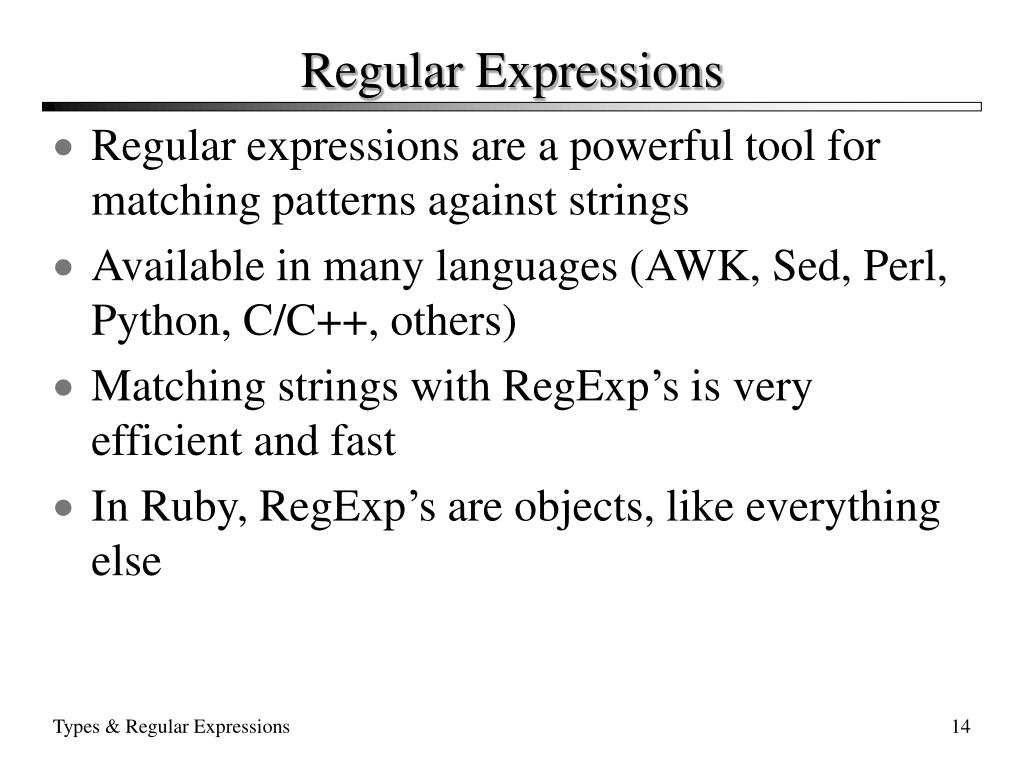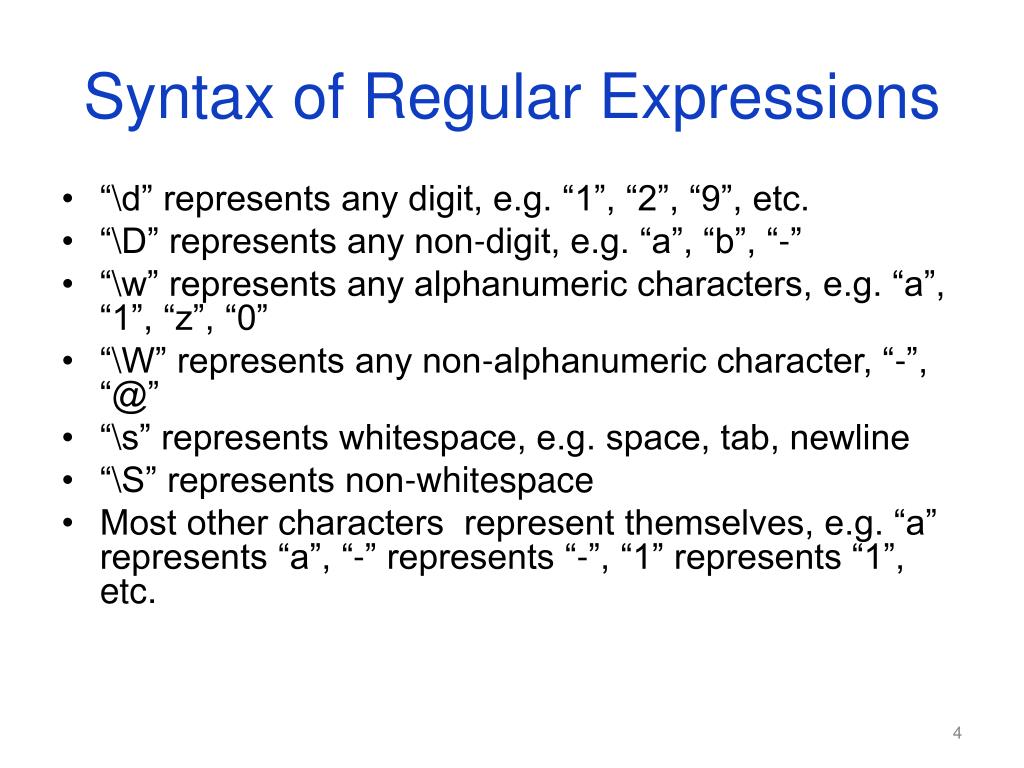
Matches any character in the specified range. Matches any character not enclosed.Ī range of characters.

Matches any one of the enclosed characters.Ī negative character set. July (first|1st|1) matches July 1st but does not match July 2Ī character set.
#REGULAR EXPRESSIONS WINDOWS#
Windows (?!95|98|NT|2000) matches Windows in Windows 3.1 but does not match Windows in Windows 2000 Lookaheads do not consume characters, that is, after a match occurs, the search for the next match begins immediately following the last match, not after the characters that comprised the lookahead. This is a non-capturing match, that is, the match is not captured for possible later use. Negative lookahead matches the search string at any point where a string not matching pattern begins. Windows (?=95|98|NT|2000) matches Windows in Windows 2000 but not Windows in Windows 3.1 Lookaheads do not consume characters: after a match occurs, the search for the next match begins immediately following the last match, not after the characters that comprised the lookahead. Positive lookahead matches the search string at any point where a string matching pattern begins. Industr(?: y|ies) is a more economical expression than industry|industries This is useful for combining parts of a pattern with the "or" character (|). Matches pattern but does not capture the match, that is, it is a non-capturing match that is not stored for possible later use. To match parentheses characters ( ), use '\(' or '\)'. The captured match can be retrieved from the resulting Matches collection, using the SubMatches collection in VBScript or the $0$9 properties in JScript.

Makes the remainder of the regular expression case insensitive. To match any character including the '\n', use a pattern such as ''. Matches any single character except "\n". When this character immediately follows any of the other quantifiers (*, +, ?, matches the first three os in fooooood

Matches the preceding character or sub-expression zero or one time.Ĭolou?r matches color or colour but not colouur Matches the preceding character or sub-expression one or more times. Matches the preceding character or sub-expression zero or more times. If the RegExp object’s Multi-line property is set, $ also matches the position preceding '\n' or '\r'.Ĭat$ matches any string that ends with cat Matches the position at the end of the input string. If the RegExp object’s Multi-line property is set, ^ also matches the position following '\n' or '\r'. Matches the position at the beginning of the input string. The sequence \\ matches \ and \( matches ( Marks the next character as a special character, a literal, a back-reference, or an octal escape.


 0 kommentar(er)
0 kommentar(er)
